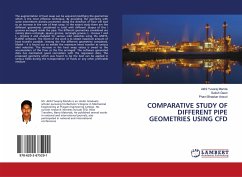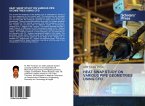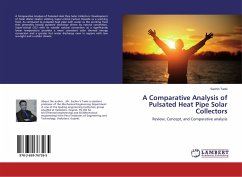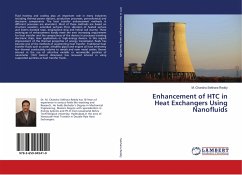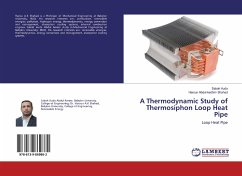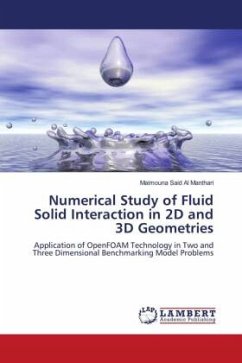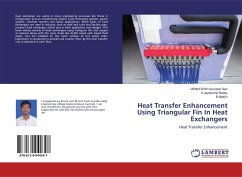The augmentation of heat swap can be acquired modifying the geometries which is the most effective technique. By providing the geometry with some intermittent distress promoters along the direction of flow will lead to an increase in the rate of heat swap. In the extant study there are five different geometries considered in total with different shapes of fins / grooves arranged inside the pipe. The different geometries considered are namely plane rectangle, square groove, rectangle groove, L - Groove 1 and L - Groove 2 and analyzed for various inlet velocities using the ANSYS-FLUENT software. The intent of the work is to obtain maximum amount of heat transfer possible. Among the five different geometries considered, Model - 4 is found out to exhibit the maximum heart transfer at various inlet velocities. This increase in the heat swap values is owed to the accumulation of the flow at the fins arranged. The software generated data has maintained good correlation with the regression data. The proposed geometry which was found to be the best can be applied in various fields during the transportation of fluids or any other preferable medium
Bitte wählen Sie Ihr Anliegen aus.
Rechnungen
Retourenschein anfordern
Bestellstatus
Storno

